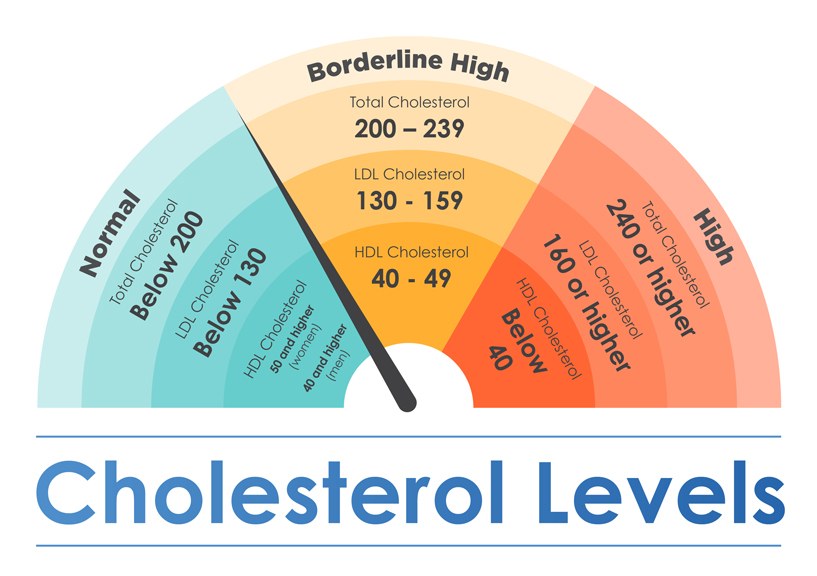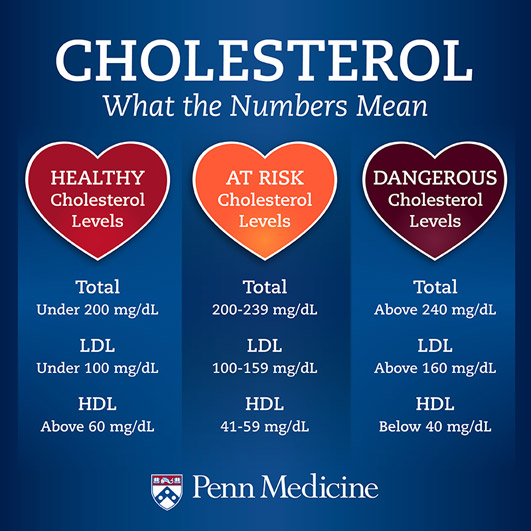Discover the surprising reasons why managing LDL cholesterol early is crucial for your long-term health and well-being.
Table of Contents
- Introduction: The Lowdown on Cholesterol
- Understanding LDL Cholesterol
- The Dangers of High LDL Cholesterol
- Starting Early: Why It Matters
- Healthy Habits to Manage Cholesterol
- Understanding Genetics and LDL Cholesterol
- Testing for LDL Cholesterol
- Work with Your Doctor
- Tracking Your Progress
- The Heart of the Matter
- FAQs
Introduction: The Lowdown on Cholesterol
Cholesterol is a word you might have heard before when adults talk about staying healthy. But what exactly is cholesterol, and why is it important to know about it, especially a type called LDL cholesterol for our heart’s health?
What is Cholesterol?
To put it simply, cholesterol is a waxy substance that travels around in our blood. It’s like our blood’s transportation system, making sure our bodies get what they need to work properly. LDL cholesterol, often called the “less-friendly” type, is something we need to pay attention to because it can impact our heart health.
Why is Heart Health Important?
Our hearts are like the engines that keep our bodies running smoothly. Cholesterol is a significant factor when it comes to our heart’s health. Imagine cholesterol as the oil that makes sure our heart engine runs smoothly. We need to keep an eye on it to make sure everything functions well.
Understanding LDL Cholesterol
LDL cholesterol plays a significant role in our body and can impact our health. Let’s take a closer look at what LDL cholesterol is and how it can affect us.
The ‘Bad’ Cholesterol
LDL cholesterol is often called the ‘bad’ cholesterol because it can cause problems when there is too much of it in our bodies. Imagine it as a troublemaker that can lead to issues if not managed properly.
What LDL Does to Your Body
When there is an excess of LDL cholesterol, it can build up in the walls of our blood vessels over time, forming a sticky substance called plaque. This buildup can make our blood vessels narrow and stiff, leading to potential blockages that can affect the flow of blood to our hearts and other parts of our body.
The Dangers of High LDL Cholesterol
Having high levels of LDL cholesterol can be dangerous for our hearts. When there is too much LDL cholesterol in the blood, it can build up on the walls of our arteries. Over time, this buildup can lead to the formation of plaque, making it harder for blood to flow through the arteries. This can ultimately increase the risk of heart disease, heart attacks, and strokes.

Image courtesy of pharmeasy.in via Google Images
High Blood Pressure Concerns
High levels of LDL cholesterol can also contribute to high blood pressure. When the arteries become clogged with plaque due to excess LDL cholesterol, the heart has to work harder to pump blood through the narrowed passageways. This extra strain on the heart can result in elevated blood pressure levels, which can further increase the risk of heart-related problems.
Starting Early: Why It Matters
It’s like planting a seed today to grow a healthy tree tomorrow. When you start managing your cholesterol levels early, you are taking care of your heart health for the future. By keeping your cholesterol in check now, you can lower the risk of facing big health problems like heart diseases when you grow up.
Easier to Manage When Young
Imagine it’s easier to clean up a messy room when there’s not too much clutter around. In the same way, managing your cholesterol levels when you are young can be simpler because your body is in better shape to respond to healthy habits. Starting early means less work later on!
Healthy Habits to Manage Cholesterol
In order to keep your heart healthy and your cholesterol levels in check, it’s important to adopt some healthy habits in your daily routine. By making small changes to your diet and lifestyle, you can positively influence your LDL cholesterol levels and reduce your risk of heart disease.

Image courtesy of www.nhlbi.nih.gov via Google Images
Healthy Eating
Choosing the right foods can make a big difference in managing your cholesterol levels. Foods that are high in saturated fats, trans fats, and cholesterol can raise your LDL cholesterol. Instead, opt for a diet rich in fruits, vegetables, whole grains, lean protein sources like fish and poultry, and healthy fats from sources like nuts and olive oil. These foods can help lower your LDL cholesterol and keep your heart healthy.
Staying Active
Regular physical activity is also key to managing your cholesterol levels. Exercise can help increase your HDL cholesterol (the ‘good’ cholesterol) while lowering your LDL cholesterol. Aim for at least 60 minutes of physical activity each day. This can include activities like playing sports, biking, swimming, or simply going for a brisk walk. By staying active, you can boost your heart health and keep your cholesterol in check.
| Reason | Explanation |
|---|---|
| Prevent Cardiovascular Disease | High LDL cholesterol levels can lead to the buildup of plaque in the arteries, increasing the risk of heart disease and stroke. |
| Improve Overall Health | Lowering LDL cholesterol can have positive effects on overall health, reducing the risk of various health complications. |
| Manage Risk Factors | By managing LDL cholesterol early, individuals can address a major risk factor for heart disease and other cardiovascular issues. |
| Prevent Long-Term Damage | Addressing high LDL cholesterol levels early can help prevent long-term damage to the heart and blood vessels. |
Understanding Genetics and LDL Cholesterol
Genetics can play a significant role in determining your LDL cholesterol levels. LDL cholesterol, or the “bad” cholesterol, is influenced by the genes you inherit from your parents. This means that if someone in your family has high cholesterol, you may be more at risk of having high LDL cholesterol as well.
Is High Cholesterol in the Family?
If your parents or other family members have a history of high cholesterol, it’s important to talk to your doctor about it. Understanding your family’s health history can give you and your healthcare provider important information about your potential risks for high LDL cholesterol and cardiovascular disease.
Testing for LDL Cholesterol
When it comes to managing your cholesterol levels, one essential step is testing for LDL cholesterol. But what does this entail, and why is it so important? Let’s find out!

Image courtesy of my-doc.com via Google Images
What Happens During a Cholesterol Test?
A cholesterol test is a simple blood test that helps healthcare providers check your cholesterol levels. This test can specifically measure your LDL cholesterol, also known as the ‘bad’ cholesterol. By getting this test, doctors can understand your risk of heart disease and create a plan to keep your cholesterol levels in check.
During the test, a healthcare professional will draw a small sample of blood from your arm using a needle. It may feel like a quick pinch, but it’s over before you know it! The blood sample is then sent to a lab for analysis, where experts will measure the levels of LDL cholesterol along with other important markers.
Once the results are in, your doctor will discuss the findings with you and recommend steps to manage your cholesterol if needed. They might suggest lifestyle changes, such as eating better and exercising more, or medications to help lower your LDL cholesterol levels and keep your heart healthy.
Remember, getting tested for LDL cholesterol is a crucial part of taking care of your heart health. It helps you and your healthcare provider understand where you stand and what actions you can take to keep your heart strong!
Work with Your Doctor
When it comes to managing your cholesterol levels, it’s essential to work closely with your doctor. They are there to help you navigate the complexities of cholesterol management and can provide expert guidance on creating a personalized plan that suits your needs.
Creating a Management Plan
Your doctor will work with you to develop a comprehensive management plan tailored to your individual health needs. This plan may include dietary changes, exercise recommendations, and possibly medications, if necessary. By following this plan under your doctor’s supervision, you can effectively lower your LDL cholesterol and improve your heart health.
Tracking Your Progress
Keeping track of your cholesterol levels is important in understanding how your heart health is doing. By monitoring your cholesterol levels over time, you can see how your efforts in managing your cholesterol are paying off.

Image courtesy of www.pennmedicine.org via Google Images
Keep a Cholesterol Diary
One way to track your progress is by keeping a cholesterol diary. In this diary, you can jot down your cholesterol levels from your doctor visits, note any changes in your diet or exercise routine, and record how you are feeling overall.
By maintaining a record of your cholesterol levels and lifestyle habits, you can see patterns and determine what might be affecting your cholesterol levels. This can help you and your doctor make better decisions about managing your cholesterol effectively for a healthier heart.
The Heart of the Matter
In conclusion, taking care of your LDL cholesterol is crucial for your heart health and overall well-being. By understanding the impact of cholesterol management on your cardiovascular health, you can make informed choices that promote a healthy heart.
Remember, your heart works hard every day to keep you going, and managing your LDL cholesterol is one way to show appreciation for all it does. Stay active, eat healthy, and work with your healthcare provider to keep your heart healthy and strong!
Take control of your health early, and you’ll be setting yourself up for a vibrant and fulfilling life. Your heart will thank you!
FAQs
Why do some kids have to get their cholesterol checked?
Some kids may need to get their cholesterol checked because, just like adults, they can also have high cholesterol levels. High cholesterol can put you at risk for heart problems even at a young age. By checking your cholesterol early, you and your doctor can work together to keep it under control and maintain a healthy heart.
Can eating fruits and veggies help my cholesterol?
Yes, eating fruits and vegetables can definitely help your cholesterol! Fruits and veggies are packed with fiber, vitamins, and minerals that can help lower your LDL cholesterol, which is the “bad” cholesterol. So, remember to fill your plate with colorful fruits and veggies to keep your heart healthy.





